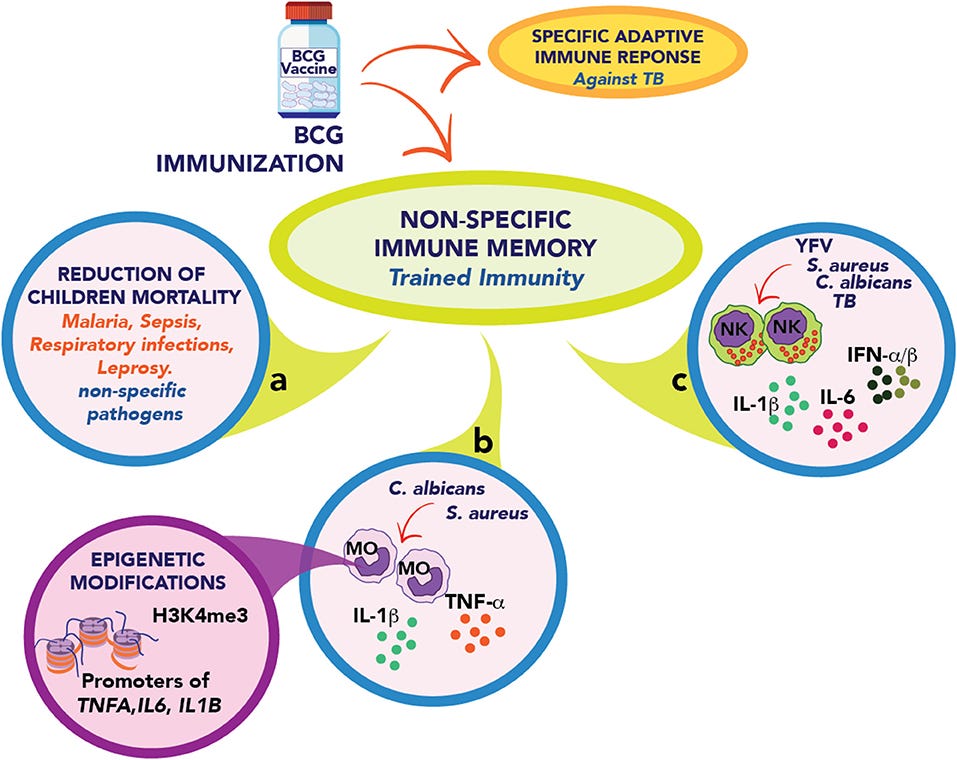100-Year-Old BCG Vaccine Outperforms Novel mRNA Injections Against COVID-19
There was never a need for dangerous mRNA platforms when safer alternatives existed.
by Nicolas Hulscher, MPH
The Bacillus Calmette-Guérin (BCG) vaccine is a live attenuated form of Mycobacterium bovis, primarily used to prevent tuberculosis and other mycobacterial infections. Developed by Albert Calmette and Camille Guérin, the vaccine was first administered to humans in 1921. As with all vaccines, BCG can cause serious adverse events and death. Lu et al revealed that the incidence of serious adverse events associated with the BCG vaccine may be as low as 8 per million, significantly lower than the risk associated with mRNA COVID-19 vaccines. Fraiman et al identified an excess risk of 1,250 serious adverse events per million COVID-19 vaccinated individuals.
Covian et al reported:
Besides protection against tuberculosis, BCG has been shown to reduce the mortality of children due to infection by unrelated pathogens due to a non-specific immune cross-protection (Figure 1) (10, 11). In recent years, it has been shown that this effect is a consequence of the type of non-specific immune memory induced after vaccination as part of protective “trained immunity” (7). This type of immunological memory is developed by innate immune cells, such as monocytes, macrophages, and natural killer (NK) cells (12, 13), and can be efficiently induced by BCG (13–15), β-glucan (16), or Candida albicans (17). The “trained” state allows the cell to respond in a faster and stronger way against several microbial infections (13, 14).
Keep reading with a 7-day free trial
Subscribe to FOCAL POINTS (Courageous Discourse) to keep reading this post and get 7 days of free access to the full post archives.



